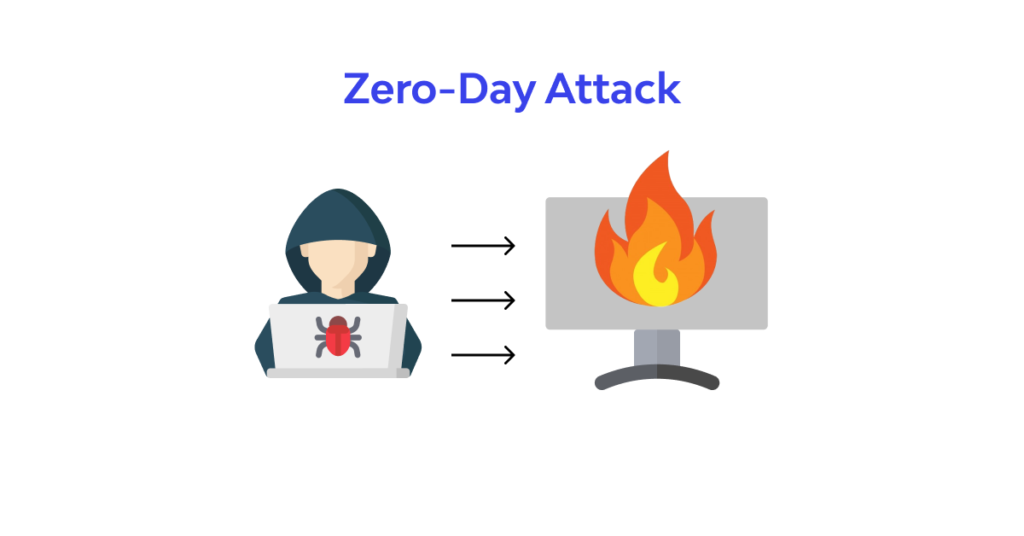
Are you aware of the constant threat of advanced persistent threats (APTs) and zero-day attacks to your business? In today’s digital landscape, it’s vital to protect your organization from these stealthy and highly sophisticated cyber threats. APTs and zero-day attacks can bypass traditional security measures, leaving your sensitive data and critical infrastructure vulnerable to exploitation.
Understanding Advanced Persistent Threats (APTs) and Zero-Day Attacks
APTs are long-term, targeted attacks launched by skilled hackers that aim to gain unauthorized access and remain undetected for extended periods. These attacks are highly sophisticated and often involve multiple stages, including reconnaissance, initial compromise, command and control, lateral movement, and data exfiltration. APT groups are typically well-funded and possess advanced technical capabilities, allowing them to exploit vulnerabilities in your network and systems.
Zero-day attacks, on the other hand, exploit vulnerabilities in software that are unknown to the vendor. These vulnerabilities can be used to bypass security controls and gain unauthorized access to your systems. The term “zero-day” refers to the fact that the vendor has zero days to patch the vulnerability before it is exploited by attackers. This makes zero-day attacks particularly dangerous, as there are no known defense mechanisms in place to protect against them.
The Impact of APTs and Zero-Day Attacks on Businesses
The impact of APTs and zero-day attacks on businesses can be devastating. These attacks can result in unauthorized access to sensitive data, intellectual property theft, financial losses, reputational damage, and even legal consequences. A successful APT or zero-day attack can go undetected for months or even years, allowing attackers to gather valuable information and maintain a persistent presence within your network.
Furthermore, APTs and zero-day attacks can target critical infrastructure, such as power grids, transportation systems, and healthcare facilities. The disruption or compromise of these essential services can have severe consequences for society as a whole. It is, therefore, crucial for businesses and organizations to take proactive measures to prevent and mitigate the risk of APTs and zero-day attacks.
Common Targets and Industries Vulnerable to APTs and Zero-Day Attacks
APTs and zero-day attacks can target businesses and industries across the board. However, certain sectors are more vulnerable due to the nature of their operations and the value of the data they possess. Government agencies, defense contractors, financial institutions, healthcare providers, and technology companies are among the most common targets for APTs and zero-day attacks.
Government agencies are attractive targets due to the sensitive information they hold, including classified data and personal records of citizens. Defense contractors, on the other hand, possess valuable intellectual property related to national security.
Financial institutions are targeted for their financial assets and customer data, while healthcare providers are sought after for patient records and medical research. Technology companies, especially those involved in software development, are vulnerable to zero-day attacks as they often operate with complex and interconnected systems.
Detecting and Preventing APTs and Zero-Day Attacks
Preventing APTs and zero-day attacks requires a multi-layered approach that combines technical controls, employee awareness, and robust incident response procedures. Here are some strategies to consider:
Implementing Robust Network Security Measures
A strong network security infrastructure is the foundation of any defense against APTs and zero-day attacks. This includes deploying firewalls, intrusion detection and prevention systems, secure email gateways, and advanced endpoint protection solutions. Network segmentation and micro-segmentation can also help limit the impact of an APT or zero-day attack by isolating critical systems and data.
Regularly Updating and Patching Software and Systems
Keeping your software and systems up to date is critical for preventing zero-day attacks. Vendors regularly release patches and updates that address known vulnerabilities. By promptly applying these updates, you can close security gaps and reduce the risk of exploitation. Automated patch management tools can streamline this process and ensure that all devices and applications are patched in a timely manner.
Employee Training and Awareness Programs
Human error is often a weak link in the security chain. APTs and zero-day attacks often rely on social engineering techniques, such as phishing emails and malicious attachments, to gain initial access to a network.
By educating your employees about the risks and providing regular training on cybersecurity best practices, you can significantly reduce the likelihood of successful attacks. Encourage employees to report suspicious emails or activities and implement a robust incident response process.
Utilizing Advanced Threat Intelligence Tools and Services
Advanced threat intelligence tools and services can provide real-time insights into emerging threats and indicators of compromise. These tools leverage machine learning algorithms and behavioral analytics to detect anomalous activities and potential APT or zero-day attacks. By integrating threat intelligence into your security operations, you can proactively identify and respond to threats before they cause significant damage.
Incident Response and Recovery Strategies
Despite your best efforts, it’s essential to have a well-defined incident response plan in place. This plan should outline the steps to be taken in the event of an APT or zero-day attack, including containment, eradication, and recovery procedures.
Regularly test and update your incident response plan to ensure its effectiveness. Additionally, consider implementing a backup and disaster recovery strategy to minimize downtime and data loss in the event of a successful attack.
Conclusion: Securing Your Business against APTs and Zero-Day Attacks
In today’s cybersecurity landscape, the threat of APTs and zero-day attacks is ever-present. The consequences of falling victim to these stealthy and highly sophisticated attacks can be severe, both in terms of financial losses and reputational damage.
By understanding the indicators and techniques used by APT groups, implementing robust network security measures, regularly updating and patching software and systems, conducting employee training and awareness programs, utilizing advanced threat intelligence tools, and having a well-defined incident response plan, you can significantly enhance your organization’s defenses against APTs and zero-day attacks.
Don’t wait until it’s too late—take proactive steps to secure your business against APTs and zero-day attacks today.

